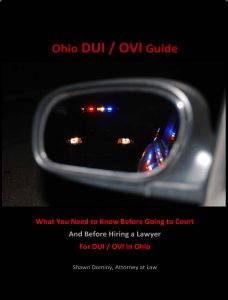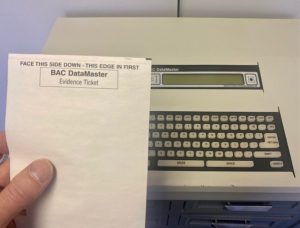 Police officers in Georgia are being trained to draw blood from drivers suspected of DUI (called ‘OVI’ in Ohio). Typically, a person arrested for OVI in Ohio is taken to a police station for a breath test or urine test. Occasionally, an OVI suspect is taken to a hospital for a blood test. In Georgia, DUI suspects will now have their blood drawn by police officers. Could we soon have police officers drawing blood from OVI suspects in Ohio?
Police officers in Georgia are being trained to draw blood from drivers suspected of DUI (called ‘OVI’ in Ohio). Typically, a person arrested for OVI in Ohio is taken to a police station for a breath test or urine test. Occasionally, an OVI suspect is taken to a hospital for a blood test. In Georgia, DUI suspects will now have their blood drawn by police officers. Could we soon have police officers drawing blood from OVI suspects in Ohio?
Articles Posted in DUI/OVI blood/breath/urine tests
Britt Reid’s Case And Vehicular Assault Investigations
 A few days before the Kansas City Chiefs were to play in the Super Bowl, assistant coach Britt Reid (son of head coach Andy Reid) was involved in a three-car accident which left a five-year-old in critical condition. Earlier this month, Britt Reid was charged with the felony offense of ‘DWI-Serious Physical Injury’. While this incident occurred in Missouri, the investigation which led to the charge is essentially the same as a Vehicular Assault investigation in Ohio.
A few days before the Kansas City Chiefs were to play in the Super Bowl, assistant coach Britt Reid (son of head coach Andy Reid) was involved in a three-car accident which left a five-year-old in critical condition. Earlier this month, Britt Reid was charged with the felony offense of ‘DWI-Serious Physical Injury’. While this incident occurred in Missouri, the investigation which led to the charge is essentially the same as a Vehicular Assault investigation in Ohio.
New Book For Those Charged With DUI / OVI: The “Ohio DUI/OVI Guide”
 Many people charged with DUI (called ‘OVI’ in Ohio), especially those charged with a first offense, feel like they are in the dark. They do not understand the elements and consequences of OVI, and they do not know what to expect in the court process. They also are uncertain about whether to hire a lawyer and how to find a good defense attorney. I recently published a new book, the Ohio DUI/OVI Guide, which answers most of the questions people ask in this situation. My hope is that those who read the guide will no longer be in the dark.
Many people charged with DUI (called ‘OVI’ in Ohio), especially those charged with a first offense, feel like they are in the dark. They do not understand the elements and consequences of OVI, and they do not know what to expect in the court process. They also are uncertain about whether to hire a lawyer and how to find a good defense attorney. I recently published a new book, the Ohio DUI/OVI Guide, which answers most of the questions people ask in this situation. My hope is that those who read the guide will no longer be in the dark.
How Long Is THC Detectable In DUI / OVI Cases?
 When people think of a DUI charge (called ‘OVI’ in Ohio), most think of drunk driving. This is where the bulk of the money and effort have been concentrated to raise awareness: think of the “Buzzed Driving is Drunk Driving” or “Over the Limit, Under Arrest” advertising campaigns. However, with more states legalizing marijuana for medical and recreational use, more people are finding themselves charged with OVI stemming from alleged marijuana impairment. This is a trend we have been following for some time. For people charged with a Marijuana OVI, a frequent question is: How long is THC detectable in your system?
When people think of a DUI charge (called ‘OVI’ in Ohio), most think of drunk driving. This is where the bulk of the money and effort have been concentrated to raise awareness: think of the “Buzzed Driving is Drunk Driving” or “Over the Limit, Under Arrest” advertising campaigns. However, with more states legalizing marijuana for medical and recreational use, more people are finding themselves charged with OVI stemming from alleged marijuana impairment. This is a trend we have been following for some time. For people charged with a Marijuana OVI, a frequent question is: How long is THC detectable in your system?
Discarding Evidence In DUI / OVI Breath-Test Cases
 A police officer discarded evidence that a DUI suspect blew under the ‘legal limit’. According to WCNC, the suspect was involved in a one-car accident and pulled her vehicle into a gas station parking lot. An officer went to the gas station and had the suspect perform field sobriety tests. The officer took the suspect into custody and administered multiple breath tests. The officer obtained two evidence tickets with results from the breath tests. The officer threw-out the evidence ticket with a result ‘under the limit’, kept the evidence ticket with a result ‘over the limit’, and charged the suspect with DUI (called ‘OVI’ in Ohio).
A police officer discarded evidence that a DUI suspect blew under the ‘legal limit’. According to WCNC, the suspect was involved in a one-car accident and pulled her vehicle into a gas station parking lot. An officer went to the gas station and had the suspect perform field sobriety tests. The officer took the suspect into custody and administered multiple breath tests. The officer obtained two evidence tickets with results from the breath tests. The officer threw-out the evidence ticket with a result ‘under the limit’, kept the evidence ticket with a result ‘over the limit’, and charged the suspect with DUI (called ‘OVI’ in Ohio).
Ohio Court Interprets Recent Supreme Court Decision For DUI/OVI Cases
 Over the past couple of years, this blog has followed and discussed the United States Supreme Court’s decision in Mitchell v. Wisconsion. While Supreme Court decisions can seem like seismic shifts in the law when they are issued, the reality is it often takes time for their effects to be felt on a practical level. Such is the case with Mitchell. While it was decided over a year-and-a-half ago, it is just now being discussed by Ohio Appellate Courts.
Over the past couple of years, this blog has followed and discussed the United States Supreme Court’s decision in Mitchell v. Wisconsion. While Supreme Court decisions can seem like seismic shifts in the law when they are issued, the reality is it often takes time for their effects to be felt on a practical level. Such is the case with Mitchell. While it was decided over a year-and-a-half ago, it is just now being discussed by Ohio Appellate Courts.
Auto-Brewery Syndrome Can Lead To DUI / OVI Charges
 A semi rolled-over and spilled about 11,000 salmon onto the highway. As the fish flopped around on the road, the truck driver was charged with DUI. But it turned-out he had ‘auto-brewery syndrome’, a condition in which his body makes its own alcohol. This condition is rare but has been identified many times. For a person charged with DUI (called ‘OVI’ in Ohio) who drank no alcohol, auto-brewery syndrome may be responsible.
A semi rolled-over and spilled about 11,000 salmon onto the highway. As the fish flopped around on the road, the truck driver was charged with DUI. But it turned-out he had ‘auto-brewery syndrome’, a condition in which his body makes its own alcohol. This condition is rare but has been identified many times. For a person charged with DUI (called ‘OVI’ in Ohio) who drank no alcohol, auto-brewery syndrome may be responsible.
Court’s Decision Regarding Expert Witness Report Affects Ohio DUI / OVI Cases
 In Ohio DUI/OVI cases, the prosecution sometimes introduces expert testimony. If a prosecutor intends to do so, the prosecutor must provide the defense attorney with a written report summarizing the expert’s testimony. According to the Ohio discovery rules, the report must be disclosed to defense counsel at least 21 days prior to trial. What happens when the report does not contain all the expert’s testimony or isn’t provided timely? A recent decision from the Ohio Supreme Court answers that question.
In Ohio DUI/OVI cases, the prosecution sometimes introduces expert testimony. If a prosecutor intends to do so, the prosecutor must provide the defense attorney with a written report summarizing the expert’s testimony. According to the Ohio discovery rules, the report must be disclosed to defense counsel at least 21 days prior to trial. What happens when the report does not contain all the expert’s testimony or isn’t provided timely? A recent decision from the Ohio Supreme Court answers that question.
Appeals Court Upholds OVI Expert Exclusion In Columbus Case
 OVI trials sometimes involve testimony from expert witnesses. Those witnesses include pharmacologists who testify about the accuracy of the defendant’s breath test result. A recent decision from an Ohio Court of Appeals demonstrates the importance of assessing the quality of the expert witness report and evaluating the utility of anticipated expert testimony.
OVI trials sometimes involve testimony from expert witnesses. Those witnesses include pharmacologists who testify about the accuracy of the defendant’s breath test result. A recent decision from an Ohio Court of Appeals demonstrates the importance of assessing the quality of the expert witness report and evaluating the utility of anticipated expert testimony.
‘Times’ Article Raises Questions About Ignition Interlock Devices
 It makes the roads safer, except when it makes the roads more dangerous. It’s a fair consequence for a person convicted of DUI/OVI, except when it’s unfair. The ignition interlock device has been used increasingly by Ohio and most other states to prevent drunk driving. As illustrated by a recent article in The New York Times, the device intended to encourage safe roads and fair punishment has actually caused accidents and unjust punishments. What should Ohio do?
It makes the roads safer, except when it makes the roads more dangerous. It’s a fair consequence for a person convicted of DUI/OVI, except when it’s unfair. The ignition interlock device has been used increasingly by Ohio and most other states to prevent drunk driving. As illustrated by a recent article in The New York Times, the device intended to encourage safe roads and fair punishment has actually caused accidents and unjust punishments. What should Ohio do?
 Columbus OVI/DUI Attorney Blog
Columbus OVI/DUI Attorney Blog

